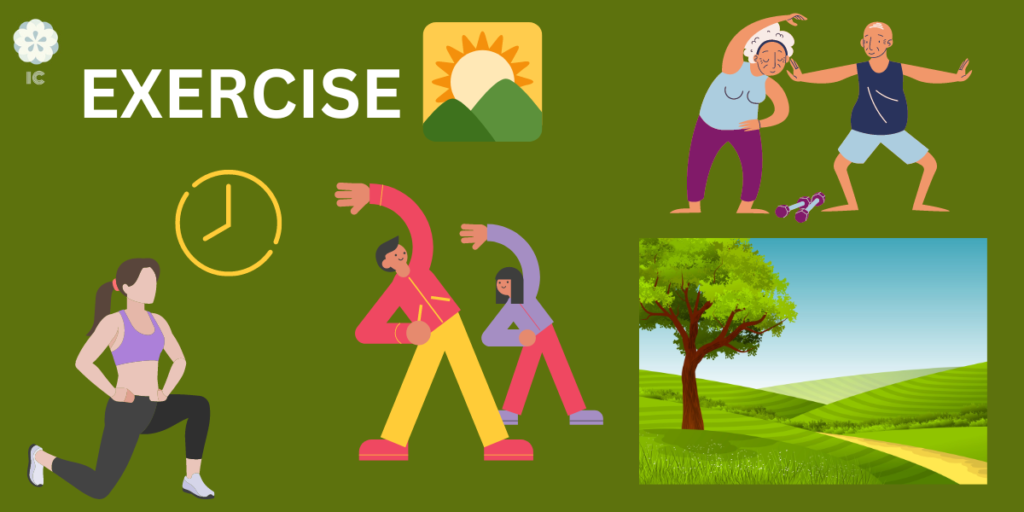Exercise

Exercise is the cornerstone of physical health and well-being, encompassing a broad spectrum of activities aimed at improving strength, flexibility, endurance, and overall fitness. Its benefits extend far beyond physical prowess, impacting mental health, emotional stability, and longevity.
At its core, exercise is any physical activity that engages the body’s muscles and elevates the heart rate. From brisk walking to intense weightlifting, the spectrum of exercises caters to individuals of all fitness levels and preferences. Aerobic exercises like running, swimming, and cycling enhance cardiovascular health by increasing heart rate and improving circulation. Strength training, on the other hand, focuses on building muscle mass and bone density through resistance exercises such as weightlifting and bodyweight exercises like push-ups and squats.
The significance of exercise lies not only in its ability to sculpt the body but also in its profound impact on mental health. Physical activity triggers the release of endorphins, neurotransmitters that alleviate stress and induce feelings of euphoria, often referred to as the “runner’s high.” Regular exercise has been linked to reduced symptoms of anxiety and depression, making it a potent tool in combating mental health disorders.
Moreover, engaging in physical activity fosters discipline, resilience, and self-confidence. Setting and achieving fitness goals cultivates a sense of accomplishment and empowers individuals to overcome obstacles both in and out of the gym. Exercise also promotes better sleep patterns, cognitive function, and overall quality of life.
However, the benefits of exercise extend beyond the individual, influencing broader societal and economic factors. Regular physical activity reduces the risk of chronic diseases such as obesity, diabetes, and cardiovascular ailments, consequently alleviating the burden on healthcare systems and improving productivity levels. Furthermore, communities with access to recreational facilities and green spaces tend to exhibit lower rates of crime and higher levels of social cohesion, highlighting the multifaceted impact of exercise on public health and well-being.
In essence, exercise transcends the boundaries of mere physical activity, serving as a catalyst for holistic health and vitality. By incorporating regular exercise into their routines, individuals can unlock a myriad of benefits that extend far beyond the confines of the gym, enriching their lives and the communities in which they reside.
